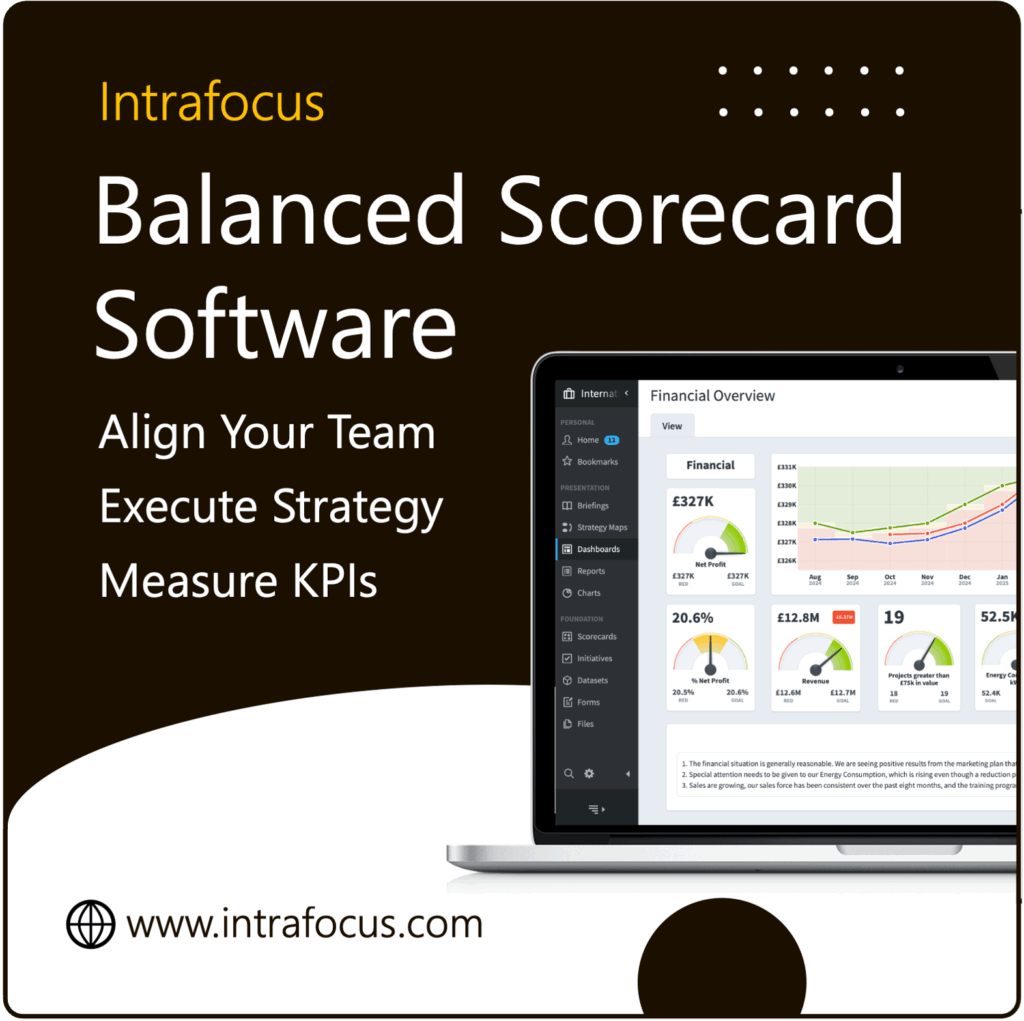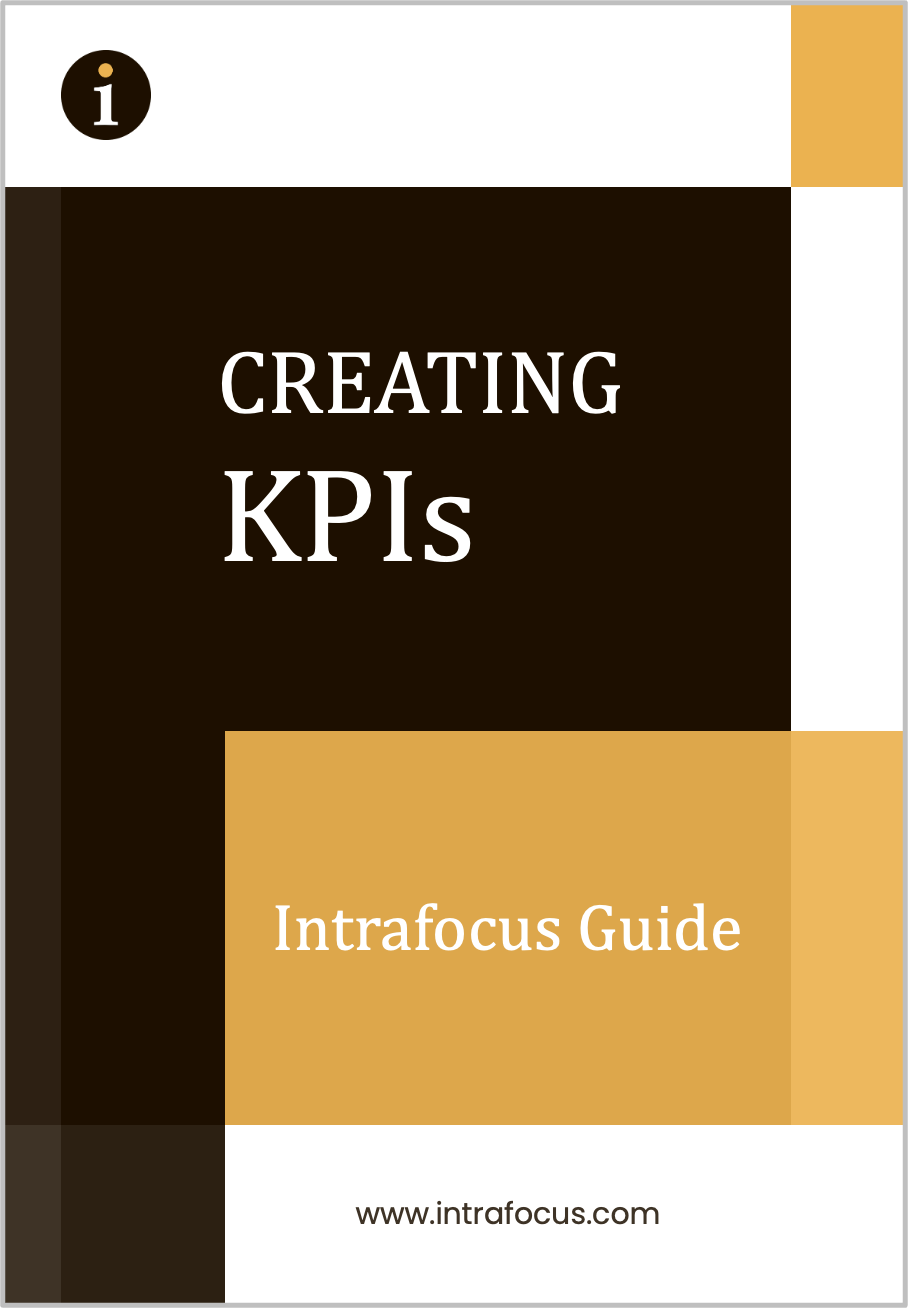The Impact of AI on the Balanced Scorecard. The Balanced Scorecard (BSC) is a strategic management tool that helps organisations align their activities with their vision and strategy. It measures performance across four key perspectives: Financial, Customer, Internal Processes, and Organisational Capacity. Artificial Intelligence (AI) is transforming businesses’ operations, offering new ways to analyse data and make decisions. AI includes technologies like machine learning and natural language processing, which can process vast amounts of data quickly and accurately. This article explores how AI enhances the Balanced Scorecard, making it more effective for modern businesses. By integrating AI, companies can gain deeper insights, improve decision-making, and stay ahead in a competitive market. The synergy between AI and the Balanced Scorecard opens new opportunities for strategic management and performance measurement.
AI in Strategic Management
Artificial Intelligence (AI) revolutionises strategic management by providing tools that enhance decision-making and streamline operations. In business, AI refers to using algorithms and machine learning to process data, identify patterns, and make informed predictions. This capability is crucial for strategic management, where decisions must be based on comprehensive and accurate information.
AI tools assist in strategic planning by automating data analysis, which saves time and reduces human error. For example, machine learning algorithms can analyse market trends and customer behaviour, providing insights that help businesses adjust their strategies proactively. Natural language processing (NLP), another AI technology, can process and understand large volumes of text data, such as customer feedback or market reports, to identify emerging trends and sentiments.
AI’s role in strategic management extends to scenario planning, a critical aspect of decision-making. By simulating various business scenarios and predicting outcomes based on different strategic choices, AI enables managers to assess potential risks and benefits before making decisions. This proactive approach leads to more informed and effective strategies, showcasing the practical benefits of AI in strategic planning.
AI also enhances decision-making by providing real-time data and analytics. With AI-powered dashboards, managers can monitor key performance indicators (KPIs) and receive alerts about significant changes, enabling swift and informed responses. This continuous monitoring supports the Balanced Scorecard’s goal of aligning activities with strategic objectives and improving performance.
AI tools like machine learning and NLP are transforming strategic management by enhancing data analysis, improving decision-making, and enabling proactive strategy adjustments. By integrating AI, businesses can leverage advanced insights and stay competitive in a rapidly changing environment.
Enhanced Data Analytics
Data analytics is a cornerstone of the Balanced Scorecard (BSC) framework, providing the necessary insights to measure and improve performance across the four perspectives: Financial, Customer, Internal Processes, and Learning & Growth. AI significantly enhances data analytics by increasing data processing accuracy, speed, and depth, enabling businesses to make more informed strategic decisions.
AI technologies such as machine learning and deep learning analyse large datasets more efficiently than traditional methods. Machine learning algorithms can identify complex patterns and correlations in data that human analysts might miss. For example, from a financial perspective, AI can analyse historical financial data to predict future trends, helping organisations set realistic financial goals and anticipate market changes.
From the Customer perspective, AI enhances data analytics by better understanding customer behaviour and preferences. Tools like sentiment analysis, which uses natural language processing (NLP), can analyse customer reviews, social media posts, and survey responses to gauge customer satisfaction and identify areas for improvement.
AI also improves data analytics from the perspective of internal processes by optimising operational efficiency. AI-powered predictive maintenance analyses data from machinery and equipment to predict failures before they occur, reducing downtime and maintenance costs. Additionally, AI-driven process optimisation can streamline workflows, identify bottlenecks, and suggest improvements, enhancing overall productivity.
From the Organisational Capacity perspective, AI supports employee development and organisational learning. AI-powered analytics can assess employee performance, identify skill gaps, and recommend personalised training programs. This ensures that employees have the necessary skills to contribute to the company’s strategic goals and fosters a culture of continuous improvement.
AI-enhanced data analytics gives organisations more accurate, timely, and actionable insights. By leveraging AI, businesses can improve their performance measurement and management, ensuring that their strategies are effective and aligned with their objectives. Integrating AI into the Balanced Scorecard framework leads to better decision-making and a more agile, responsive organisation.
Predictive Analytics and Forecasting
Predictive analytics is a powerful aspect of AI that uses data to forecast future events. In the Balanced Scorecard (BSC) context, predictive analytics plays a crucial role in helping organisations anticipate trends and make informed decisions. By leveraging AI, businesses can enhance their ability to predict outcomes and adjust their strategies accordingly.
AI-driven predictive analytics involves using algorithms to analyse historical data and identify patterns that can predict future performance. This capability is essential from the Financial perspective of the BSC. For example, AI can forecast revenue trends, identify potential risks, and suggest strategies to optimise financial outcomes. Businesses can set more accurate financial goals and take proactive measures to achieve them.
From the Customer perspective, predictive analytics can help businesses understand future customer behaviour. AI can analyse data on past purchases, customer interactions, and market trends to predict what products or services will be in demand. This enables companies to tailor their marketing efforts and improve customer satisfaction, leading to higher retention rates and increased sales.
The Internal Processes perspective also benefits from predictive analytics. AI can forecast operational needs, such as inventory levels, production schedules, and staffing requirements. By anticipating these needs, businesses can optimise their operations, reduce waste, and improve efficiency. For example, AI can predict when equipment might fail, allowing for timely maintenance and minimising downtime.
From the Organisational Capacity perspective, predictive analytics helps organisations plan for future talent needs. AI can analyse workforce trends and predict skill shortages, enabling companies to invest in training programs that prepare employees for future challenges. This proactive approach ensures the organisation has the right skills to support its strategic objectives.
Predictive analytics and forecasting, powered by AI, significantly enhance the Balanced Scorecard. By anticipating trends and making data-driven predictions, businesses can make more informed decisions, optimise their strategies, and stay ahead of the competition. This integration of AI into the BSC framework ensures that organisations are better prepared for the future, making them more agile and responsive to changing market conditions.
Case Studies
To understand AI’s real-world impact on the Balanced Scorecard (BSC), let’s explore some case studies from various industries. These examples illustrate how AI integration enhances strategic management and performance measurement.
Case Study 1: AI in Retail
A leading retail chain implemented AI to predict customer behaviour, significantly improving Customer and Financial performance. The AI system provided insights into customer preferences and buying habits by analysing purchase history, browsing patterns, and social media interactions. The company personalised marketing campaigns, optimised inventory levels, and forecasted demand more accurately. As a result, the retailer saw a 15% increase in sales and a 10% improvement in customer satisfaction scores. Additionally, predictive analytics helped reduce excess inventory, save costs, and enhance overall financial performance.
Case Study 2: AI in Manufacturing
A global manufacturing firm leveraged AI-driven analytics to optimise its supply chain, benefiting its Internal Processes. The AI system analysed data from various sources, including production schedules, supplier performance, and market demand, to identify inefficiencies and predict potential disruptions. The company reduced equipment downtime by 20% and improved operational efficiency by implementing predictive maintenance. The AI also helped streamline the procurement process, ensuring timely delivery of raw materials and reducing costs. These improvements boosted productivity and contributed to a 12% increase in profitability, positively impacting the Financial perspective.
Case Study 3: AI in Healthcare
A prominent healthcare provider used AI to enhance patient care and operational efficiency, impacting all four BSC perspectives. The AI system analysed patient records, treatment outcomes, and resource utilisation to predict patient needs and optimise scheduling. This led to a 25% reduction in patient wait times and a 15% increase in patient satisfaction. From the Internal Processes perspective, AI streamlined administrative tasks, reducing paperwork and freeing up staff to focus on patient care. Financially, the hospital saw a 10% decrease in operational costs due to improved resource management. Additionally, AI-driven insights helped identify training needs, ensuring continuous staff development and better Learning & Growth outcomes.
These case studies demonstrate the transformative power of AI when integrated with the Balanced Scorecard. By leveraging AI, organisations across various industries can enhance their strategic management processes, improve performance measurement, and achieve better outcomes in all BSC perspectives. The synergy between AI and the BSC framework leads to more informed decisions, optimised operations, and, ultimately, greater success in achieving strategic objectives.
The Impact of AI on the Balanced Scorecard
Integrating AI with the Balanced Scorecard represents a significant advancement in strategic management. As the case studies show, AI enhances data analytics, predictive forecasting, and overall decision-making, making it a powerful tool for modern businesses. By leveraging AI, organisations can gain deeper insights, optimise their operations, and stay ahead in an increasingly competitive market.
The synergy between AI and the Balanced Scorecard improves performance measurement across the four perspectives. It ensures that strategies are more aligned with real-world dynamics. This alignment leads to better financial outcomes, enhanced customer satisfaction, streamlined internal processes, and continuous learning and growth.
Intrafocus offers a comprehensive strategy workshop for businesses exploring the benefits of the Balanced Scorecard. This workshop provides expert guidance on strategic planning, performance measurement, and the effective use of AI tools. By participating in Intrafocus’s Strategy Workshop, companies can develop robust strategies that leverage the full potential of AI and the Balanced Scorecard.
The future of strategic management lies in the intelligent use of AI to enhance the Balanced Scorecard framework. By embracing this integration, businesses can achieve greater agility, responsiveness, and success in their strategic initiatives.



